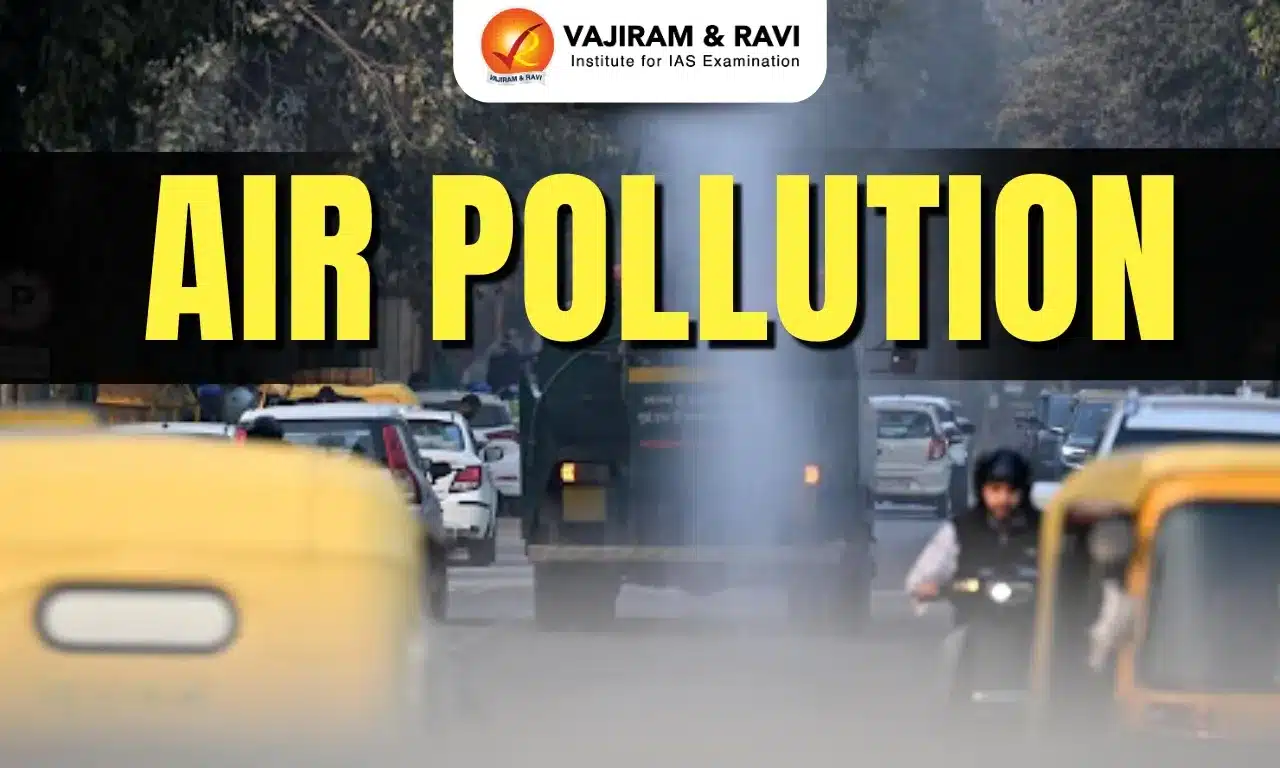What’s in today’s article?
- Why in News?
- What is Land Degradation?
- Regions Most Affected by Land Degradation
- Consequences and the Need for Action
- Conclusion
Why in News?
- The United Nations Convention to Combat Desertification (UNCCD) has released a comprehensive report titled ‘Stepping Back from the Precipice: Transforming Land Management to Stay Within Planetary Boundaries.’
- The report (published a day before the COP16 of UNCCD began in Riyadh, Saudi Arabia) underscores the alarming scale and consequences of land degradation globally and urges transformative changes in land management.
What is Land Degradation?
- Meaning:
- Land degradation refers to the loss of biological and economic productivity of ecosystems like croplands, forests, and pastures.
- According to the UNCCD, it results from unsustainable land use and management practices, amplified by natural and human-induced pressures.
- Key impacts:
- Human health and livelihoods: Reduces food quality and quantity, raising malnutrition risks.
- Promotes water- and food-borne diseases from poor hygiene and water scarcity.
- Causes respiratory diseases due to soil erosion.
- Ecosystems and biodiversity: Harmful runoff from eroded soils impacts freshwater and marine systems, endangering fauna and dependent communities.
- Decreases biodiversity and destabilises ecosystems.
- Climate change contributions: Degraded land releases stored carbon and nitrous oxide, intensifying global warming.
- Ecosystem carbon absorption capacity has dropped by 20% in the past decade.
- Human health and livelihoods: Reduces food quality and quantity, raising malnutrition risks.
- Causes of land degradation:
- Unsustainable agricultural practices: Overuse of chemical inputs, pesticides, and fertilizers disrupts soil health. Water diversion and poor irrigation practices lead to freshwater depletion.
- Climate change: Increased heat stress and erratic precipitation worsen land degradation. Global warming escalates soil erosion and reduces vegetation cover.
- Rapid urbanisation: Expanding urban areas contribute to habitat destruction and pollution. Loss of agricultural and forest lands impacts biodiversity.
Regions Most Affected by Land Degradation:
- Dry regions:
- South Asia, northern China, the High Plains and California (USA), and the Mediterranean are particularly vulnerable.
- These areas face severe soil erosion, reduced vegetation, and water scarcity.
- Low-income countries disproportionately affected:
- Tropical and arid regions, especially in Africa, bear the brunt of degradation due to limited resources and resilience.
- A third of humanity, including three-quarters of Africa’s population, lives in drylands, making them especially vulnerable.
Consequences and the Need for Action:

- Consequences: The degradation of 15 million square kilometers of land – equivalent to the size of Antarctica – signals a planetary crisis.
- Immediate steps are essential to reverse this trend, including:
- Sustainable agricultural and water management practices.
- Restoring degraded ecosystems to rebuild carbon sinks.
- Addressing urban expansion impacts on natural habitats.
- Steps taken by India:

- India’s Union Environment Minister, while speaking at the 16th conference of parties (COP16) held under the UNCCD in Riyadh, Saudi Arabia, highlighted that India is taking proactive measures to tackle land degradation.
- As desertification and poverty are linked, the minister emphasised that land degradation is not just an environmental but socioeconomic issue.
- As a result, India has initiated several programmes to enhance resilience and recovery against land degradation, including issuance of soil health cards, to help farmers engage in sustainable agricultural practices.
Conclusion: Without swift action, land degradation will undermine global efforts to combat climate change, protect biodiversity, and ensure food security, leaving a dire legacy for future generations.
Q.1. What is UNCCD?
The United Nations Convention to Combat Desertification (UNCCD) was established in 1994 to protect and restore our land and ensure a safer, just, and more sustainable future. The UNCCD is the only legally binding framework set up to address desertification and the effects of drought.
Q.2. What is the Soil Health Card Scheme?
Soil Health Card Scheme is a scheme launched by the Government of India on 19 February 2015 to issue soil cards to farmers which will carry crop-wise recommendations of nutrients and fertilisers required to help farmers to improve productivity through judicious use of inputs.
News: Bhupender Yadav: ‘India taking proactive steps to tackle land degradation’ | IE
Last updated on December, 2025
→ Check out the latest UPSC Syllabus 2026 here.
→ Join Vajiram & Ravi’s Interview Guidance Programme for expert help to crack your final UPSC stage.
→ UPSC Mains Result 2025 is now out.
→ UPSC Notification 2026 is scheduled to be released on January 14, 2026.
→ UPSC Calendar 2026 is released on 15th May, 2025.
→ The UPSC Vacancy 2025 were released 1129, out of which 979 were for UPSC CSE and remaining 150 are for UPSC IFoS.
→ UPSC Prelims 2026 will be conducted on 24th May, 2026 & UPSC Mains 2026 will be conducted on 21st August 2026.
→ The UPSC Selection Process is of 3 stages-Prelims, Mains and Interview.
→ UPSC Result 2024 is released with latest UPSC Marksheet 2024. Check Now!
→ UPSC Prelims Result 2025 is out now for the CSE held on 25 May 2025.
→ UPSC Toppers List 2024 is released now. Shakti Dubey is UPSC AIR 1 2024 Topper.
→ UPSC Prelims Question Paper 2025 and Unofficial Prelims Answer Key 2025 are available now.
→ UPSC Mains Question Paper 2025 is out for Essay, GS 1, 2, 3 & GS 4.
→ UPSC Mains Indian Language Question Paper 2025 is now out.
→ UPSC Mains Optional Question Paper 2025 is now out.
→ Also check Best IAS Coaching in Delhi
















